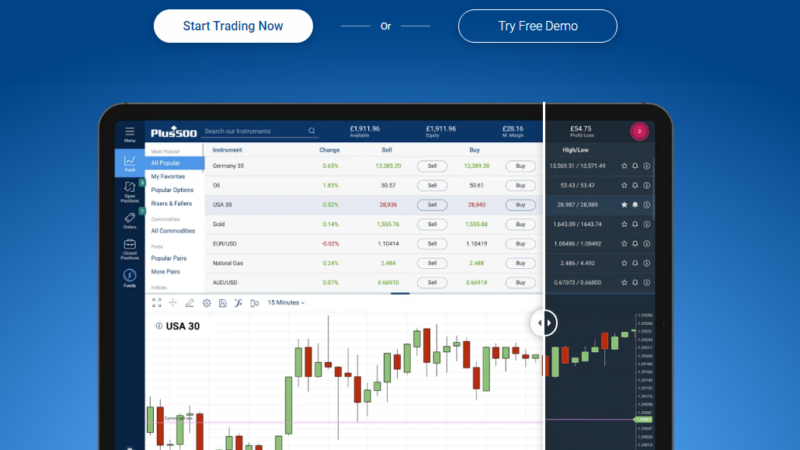Trading vs Investing: Differences Between Stock Trading and Investment
.jpeg)
Long-term investors adopt a patient stance, allowing their investments review options as a strategic investment to grow over prolonged periods without frequent adjustments. Investors focus on developing long-term wealth and accomplishing significant financial objectives over time. Trading requires swift decision-making and cashing in on market dynamics through the frequent buying and selling of various financial instruments. By fostering a resilient mindset and holding firm through ever-changing market cycles, investors aim to achieve lasting financial success.
Read THIS Before Copying Traders on eToro Copy Trading Review 2024
- The offers that appear on this site are from companies that compensate us.
- Investing is buying an asset, like an individual stock, mutual fund, or exchange-traded fund (ETF), in hopes of increasing your money over time.
- When you buy a stock—or any asset—make sure you know what you’re looking to achieve, how much risk you’re willing to tolerate, and how long you think it will take.
- Investors can adopt a more moderate risk tolerance, aligning their investments with their long-term financial goals and risk appetite.
- What you may not know is that “trading” and “investing” are quite different terms.
There are no definitive rules about which assets should go into an investment portfolio, and diversifying your portfolio across different asset classes is an option that many experienced investors choose to take. In essence, trading suits those who thrive on active decision-making and can dedicate time to mastering market dynamics. Investing, by contrast, is ideal for individuals focused on long-term wealth accumulation with minimal effort. This approach allows investors to build a diversified and balanced portfolio tailored to their risk tolerance and long-term financial objectives. Bonds provide a fixed income stream and act as a hedge against volatility, while real estate investments can generate rental income and appreciate over time.
Goal and Timeline
If all of its retirees live to age 120, or the fund experiences investment losses, it's the company's problem. Public offers unique alternative investments like luxury goods, contemporary arts, royalties, and taxable brokerage accounts. Fundrise is a great real estate platform where both accredited and non-accredited investors can invest in real estate without the hassle of buying and managing properties or dropping a huge down payment. Their returns have been impressive so far (they update in real-time; the below was as of November 17, 2023).
Warren Buffett is an investor, in particular, a value investor. He, as part of his company Berkshire Hathaway, has bought and hold positions lasting for several years or even decades. Traders and investors are both looking to make a profit on the risk they are taking, but how they measure risk and reward may differ. Trading requires high market skills, real-time analysis, and identifying the price movement in a fraction of a second to set your right foot forward.
But they can also be more complex like futures contracts and swaps. Unlike many investors, traders have to be able to keep their emotions at bay. This can be somewhat difficult as big losses can image manipulation be harder to swallow. Choosing between investing and trading depends on your goals and risk tolerance. Investing is for long-term wealth, while trading involves frequent transactions for short-term gains and requires more active management. Investing and trading are different ways to engage in financial markets.
.png)
DNB supervises the compliance of eToro (Europe) Ltd with the Anti-Money Laundering and Anti-Terrorist Financing Act and the Sanctions Act 1977. The crypto services of eToro (Europe) Ltd are not subject to prudential supervision by DNB or conduct supervision by the AFM. This means that financial operational risks in respect of the crypto services are not monitored and there is no specific financial consumer protection.
Investment Style
For example, options trading is essentially a series of side bets between traders on the performance of a stock. If a contract is in the money by $1,000, the winning trader gets exactly that money, effectively taking it from the losing trader. The information herein is general and educational in nature and should not be considered legal or tax advice. Tax laws and regulations are complex and subject to change, which can materially impact investment results.
NerdWallet, Inc. is an independent publisher and comparison service, not an investment advisor. Its articles, interactive tools and other content are provided to you for free, as self-help tools and for informational purposes only. NerdWallet does not and cannot guarantee the accuracy or applicability of any information in regard to your individual circumstances. Examples are hypothetical, and we encourage you to seek personalized advice from qualified professionals regarding specific investment issues.
Once they establish a well-considered portfolio, the emphasis shifts to holding onto their investments for the long haul, capitalizing on the potential of compounding returns and the growth of the assets. This hands-off approach affords investors the luxury of spending less time on daily market fluctuations. That's because trading requires consistent monitoring of the markets and a better understanding of how assets and markets work. Traders tend to buy and sell assets on a consistent and regular basis, and these assets can be as simple as stocks and bonds.
Day trading, active trading, and investing: What’s the difference?
Traders aim to take advantage of price Forex trading psychology fluctuations in the market by executing trades at opportune moments. Traders aim to outperform average market returns by capitalizing on mispriced stocks or market inefficiencies. Their strategies often hinge on analyzing technical patterns, market conditions, or even company fundamentals. In contrast, investors prioritize balancing risk and reward with minimal hands-on involvement.




